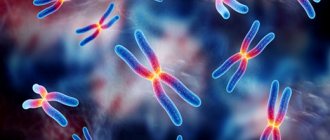Electra complex - abandoned girl syndrome
“Daddy’s favorite,” who lost her father, is not just experiencing severe personal trauma.
She finds herself tightly trapped in an archetypal behavior pattern that can affect the rest of her life. Who can we recognize today as the ancient Electra and how can we free ourselves from the power of myth? A girl who lost her father at an early age and for many years unwittingly idealizes him. A daughter who continues to rebel against her mother even after her youth is over. A teenage girl who is more attracted to dreams of boys than to actual relationships. A woman who cannot realize herself in the profession...
Many of those girls and women who are close to such styles of behavior live out the myth of Electra in their lives, says Jungian psychologist Nancy Kater, author of the study “The Electra Complex in the Psychology of Women” *. What archetypal situations, recognizable in modern families, does this myth describe?
Psychological incest with father
The legends about Electra have different interpretations - most notably, the tragedies of Aeschylus, Euripides and Seneca. The essence of the conflict can be represented in this way: first, Clytemnestra - the mother of Electra and Orestes - in alliance with her lover Aegisthus, kills Agamemnon, her husband. Years pass, Orestes and Electra grow up and decide to avenge their father: Orestes, led by his sister, kills his mother and Aegisthus.
Taking a closer look at this story, let us pay attention to the story of a girl who is acutely experiencing the loss of her beloved father.
Until about the age of six, Electra lived as a princess in a palace in Mycenae with her father Agamemnon, a powerful king. She grew up as a “daddy’s girl,” a favorite. It can be assumed that little Electra already idolized her father. Later, during the ten-year absence of her father, who went to the Trojan War, her desire for idealization intensifies. And the death of Agamemnon at the hands of Clytemnestra forces Electra to forever fix the ideal image of a courageous, loving, protective father - an image that can no longer be corrected in reality.
“If at first a positive fantasy about a father helps a woman, giving her a sense of hope,” explains Nancy Cater, “then over time it becomes destructive because it does not allow her to move on with her life. A woman lives only in her imagination, without having a real relationship. She has no energy left to follow her own destiny.”
Broken mother image
The “Electra complex” is precisely a complex of feelings, internal conflicts and experiences that cannot be reduced only to the idealization of the father. Another facet of it is a broken relationship with one’s body and one’s own sexuality, the reason for which is Electra’s difficult relationship with her domineering mother, Clytemnestra. The mother does not share the grief of her daughter who has lost her father; moreover, she devalues her loss in every way.
“Clytemnestra combines the negative aspects of the maternal archetype in Electra,” says Nancy Cater. – An absorbing mother does not allow her daughter to grow, develop personally, or experience joy, creativity, or freedom. More fundamentally, she denies her daughter’s uniqueness and individuality.” It is especially important that a negative maternal image disrupts Electra’s connection with her feminine “I”, with her sexuality.
Electra complex
The term “Electra complex” was coined by Carl Gustav Jung. In The Theory of Psychoanalysis (1913), he proposed that it be used to describe the oedipal stage of development in girls—the stage in which a 3- to 6-year-old daughter “develops a special attachment to her father with a corresponding jealousy toward her mother.”
Portrait of a modern Electra
A portrait of Electra from Nancy Cater's point of view is as follows. This woman is psychologically stuck in adolescence due to her unresolved relationship with her father. She continues to grieve for him many years later and cannot find her place in the outside world. She identifies with the role of the victim, blaming her mother for all her problems. She projects her power onto men (primarily her father and brother, Orestes) and is unable to act: she simply waits for her brother to come and save her. At the same time, she unconsciously has an inflated opinion of herself as a princess.
The myth of Electra is lived by many women and girls today. The loss of a father is not only about death, but about the departure of a father, divorce, is a common occurrence in our world. It becomes traumatizing for both mother and daughter. A mother who cannot cope with the loss (is angry at her ex-husband, blames him, or suppresses her love for him) will have difficulty tolerating the behavior of her daughter, who continues to demonstrate her love for her father. As a result, the mother becomes closed to her feelings. Their mutual misunderstanding strengthens the mother's new marriage (which the daughter may perceive as a betrayal towards her father and towards her).
Feeling isolated, a girl may retreat into a fantasy world populated by heroic male figures. She will dream that one day one of these heroes, like her father, will come and save her from life with her mother. In the future, such a psychologically incestuous relationship with an ideal father can complicate her sexual relationships with men. Having matured, modern Electra may also experience difficulties in finding her own professional path. And not only because of depression and reluctance to act. If her domineering mother is successful in her career, the daughter may refuse to realize herself in the profession in order to avoid comparison with her mother.
Find your way out
Young women who recognize themselves in this story should not be trapped in myth, insists Nancy Cater. She formulates tasks, the solution of which will help to go beyond the myth and become freer. Here are some of them:
1. Say goodbye to your father. In order to complete the grieving process, the modern Electra must get in touch with her anger at her father for abandoning her. Anger plays an important role in the grieving process, and refusing to acknowledge it only prolongs the process. Once she can openly express the feelings of anger and abandonment that are suppressed by the idealized image of her father, she will be able to accept her loss and move on.
2. Separate the real father from the ideal image. Electra may become aware of her father's shadowy, negative traits after he leaves relatives, family friends, or other people. However, there is a possibility that she will still be attached to the idealized image of her father. Therefore, the modern Electra can work through this issue indirectly through her subsequent relationships with men.
3. Restore your relationship with your animus. Electra women project their animus (the male part of the female psyche) onto men. It is important to determine what these traits are (for example, the ability to set goals, make decisions, take actions) and develop them in yourself. Once these projections are returned, psychic energy is released and the woman can become stronger, more responsible, and ready to find her own path in life.
Origins of the Electra complex in women
Initially, the term “Electra complex” was borrowed from the Iliad. The myth tells how Electra, the daughter of King Agamemnon, in collusion with her brother, kills her mother because she killed her father many years ago. Thus, she fulfills the will of the gods and ends up happily married. Of course, the modern interpretation of psychology does not imply such a bloody massacre. The Electra complex is only the competitive and jealous feelings of a daughter towards her mother out of love for her father. Moreover, according to Freud, the stage of psychological deviation of Electra is called Phallic, when the girl begins to have questions of sex, gender difference and the relationship between a man and a woman.
Reasons for the development of the Electra complex
The primary source was the myth that Electra loved her father Agamemnon very much. When he died, the daughter could not stand it and considered her mother and her lover guilty of his death. Therefore, she decided not to leave such acts unpunished.
Then Electra entered into a conspiracy with her brother, whom she convinced of her guesses. She helped him kill his mother in an attempt to avenge his father's death.
Most often, such a complex develops as a result of parental divorce. It does not appear immediately. Gradually, the girl begins to miss and reach out to her dad more and more, and her mother becomes an object of hatred due to separation from him.
In the eyes of a child, the father turns into a beautiful, unattainable being, to whom her whole soul is drawn. She considers her mother to blame for the fact that he left the family and tries in every possible way to take revenge on her for this.
Growing up, the girl plunges into a dream world, where her lover is an exact copy of him. Naturally, such a person does not exist in real life, so it is difficult for her to give up her fantasies and face reality.
Often the Electra complex is passed down along the genetic line. The mother adored her father, considering him an ideal, and when she got married, she was disappointed in her husband. The daughter, seeing her dad’s suffering, falls in love with him and the circle closes. This is how this psychological state is passed on from generation to generation, not because the man here is an exceptional person, but because of the peculiarities of female psychology.
It will be broken only when the next representative of this family successfully marries and properly raises her own daughter.
In general, the conditions for a girl to develop an Electra complex are quite numerous.
- sudden divorce of parents;
- father's kindness;
- mother's mistreatment of girl;
- the strong love of a father for his daughter;
- he lives separately and is better off;
- the wife humiliates her husband in front of the children;
- the girl looks like her father in appearance;
- he does not feel loved by his mother;
- the child and the father have a lot in common in character;
- Mom is busy all the time, etc.
All these reasons make the girl feel guilty, which she tries with all her might to make amends for. The father sees his daughter’s love and repays her in kind, unlike the mother, who does not pay any attention to the children because she is too busy. In addition, the father can be so kind to the child, indulging all the whims, that already an adult girl develops the image of a man who should also treat her this way. It is clear that young people are not able to meet these requirements.
If a father abandoned his family, but nevertheless visited his daughter and brought her mountains of gifts, then he forever becomes her ideal. He is not particularly involved in raising her, he allows her everything and spoils her. The child adores his “kind” dad, and is offended by his strict and demanding mother. This is where the origins of the Electra complex come from, which only gets worse with age.
The situation is even worse when the mother does not take care of the children, she has another husband, job or hobbies and she does not pay any attention to the girl. If she is not too affectionate with her, shouts at her, and, even more so, hits her, then all the preconditions for hatred are created.
The oldest version of the myth of Oedipus and its development by the great ancient tragedians
The Theban myth about King Oedipus and his family, doomed by fate to death, was no less famous in Ancient Greece than the legends of Hercules, Perseus, the Argonauts, the Trojan War and the wanderings of Odysseus. And now Oedipus is one of the most popular and symbolic characters in ancient Greek myths about heroes. Homer already knew the sad story of Oedipus, he knew that Oedipus’s father, the Theban king Laius, had received a terrible prophecy about him and ordered his infant son to be abandoned with his legs bound in the deserted area of the Cithaeron mountains. Oedipus was miraculously rescued and raised in Corinth. Having reached adulthood, he went to Thebes and along the road, in a narrow gorge, killed Laius, not knowing that he was his father. After this, Oedipus married Laius's widow, the beautiful Jocasta, not knowing that she was his mother. When the gods revealed this secret, Jocasta hanged herself by attaching a noose to a high crossbar, and the soul of Oedipus, the goddess of vengeance Erinyes, was plunged into severe torment, and he gouged out his eyes. The myth of Oedipus further said that the entire family of this involuntary lawless man was subjected to a curse, whose power destroyed generation after generation. Blind Oedipus was insulted by his sons, Polynices (“much quarrelsome”) and Eteocles. They did not give him the due honorable share of the sacrificial meat, and Oedipus in anger doomed them to a mortal quarrel, saying: “let them divide their father’s property with the sword.” This came true. The conflict between Eteocles and Polyneices over inheritance became the reason for the Campaign of the Seven to Thebes. The sons of Oedipus killed each other in this war.
Oedipus and the Sphinx
All these details were already set out in the original, ancient legend. But the myth of Oedipus and his house received full development only in later times, in the works of Attic tragedians. They loved to take this myth, based on the idea of the omnipotence of fate and the fragility of human assumptions and hopes, as the subject of poetic development. But even before the tragedies, the legend was modified by the influence of Egyptian mythology: the monster Fix, who lived on Mount Fikion and devastated its surroundings, was transformed into the Sphinx - a winged creature with the body of a lion and the head of a woman. It offered passers-by a riddle and cast them all into the abyss, because no one could find the correct answer to it. Only Oedipus solved the riddle of the Sphinx, and then the monster itself threw itself from the cliff.
Myths of ancient Greece. Oedipus. The one who tried to comprehend the mystery
All three of the greatest Attic tragedians - Aeschylus, Sophocles and Euripides - used the content of the myth about Oedipus and his children in their famous tragedies ("Seven against Thebes" by Aeschylus, "Antigone", "Oedipus the King" and "Oedipus at Colonus" by Sophocles, "The Petitioners" "Euripides). Each of them modified it according to the characteristics of their views and character. But the main features of their stories are the same.
Formation of the Electra complex
Gradually, with age, a girl develops an ideal man who is most similar to her father. She seeks identity not so much externally as internally. She does not need a friend, lover or spouse, but a replacement for dad. Each new fan seems boring, uninteresting and too demanding to her.
Therefore, over time, she begins to gravitate towards older men who are inclined to pamper their woman. Only with them can a girl with an Electra complex be able to build a full-fledged relationship. But the trouble is that most of these people are already married, so dreamers rarely find family happiness. And yet they do not break these ties out of fear of not finding anyone better.
Growing up, a woman continues to remain infantile and does not understand that in normal adult life different laws come into force, and not those that were in her family.
The daughter continues to hate her mother, yearns for her father and is constantly looking for someone who would console her. Such a person must save her from her mother, from the cruel world and, ideally, from herself.
Therefore, such women do not get married for a long time, rejecting all suitors and often without realizing the reason.
At the same time, her sexuality is gradually distorted. A lady begins to feel complete only if she is truly loved by a man. Normal relationships without passions, separations and tears do not suit her.
Unspent love turns to pets, other people's children and various hobbies. This is explained by the fact that sexual instincts are suppressed, but the female need for care and participation remains. In addition, such a representative of the fairer sex feels inferior if she does not give someone her care, strength or time.
Such women become attached to their loved ones, especially if they are a husband and children, to the point of fanaticism and frenzy. They are the ones who are capable of committing suicide after the death or betrayal of their spouse.
Therefore, such a state is designated by the word “complex”. It includes a whole set of feelings, internal dissatisfaction with oneself and depression. Such sensations do not serve as a manifestation of it; this is a general defect in female psychology.
The lady is often very shy. She is afraid of her body and intimate contacts with men. Subconsciously it seems to her that her parents will condemn her for this. Z. Freud believed that this is how rivalry between mother and daughter manifests itself.
These days, the Electra complex is viewed more broadly. Since childhood, the girl was not explained the relationship between the sexes. She did not see an example of normal marital relationships in her family, and she did not have a loved one who could help her cope with psychological blocks.
Oedipus and Electra complexes in children
Raising a child is a difficult and at the same time exciting process. Only by becoming parents can we return to childhood and the exciting world of games. However, building a relationship with a little man promises constant obstacles. And mostly they have a psychological origin and affect the relationship of the offspring with the parents. This is especially true for the period when the child begins to realize his gender identity. If you have similar problems, do not rush to sound the alarm and look for anomalies in the child’s development. Some of them are age norms. One striking example of this is the Electra-Oedipus complex.
Freud's psychosexual theory
The famous psychotherapist Sigmund Freud proposed to the world a theory according to which a person is endowed with sexual instincts from birth. The manifestation of these instincts can result in various childhood mental traumas. According to Freud, personality development coincides with psychosexual development. As a result of this interaction, a person’s fate, his character, as well as various mental disorders or life difficulties are formed. The presence or absence of various problems in adult life depends on the stages of psychosexual development. There are 4 of them: oral, anal, phallic and genital. Let us dwell in more detail on the phallic stage.
Between 3 and 6 years of age, a child's interests begin to develop around the genitals. At this time, children begin to explore their genitals and ask questions related to sexual relations. During this same period, a personality conflict arises, which Freud called the Oedipus complex (in boys) or the Electra complex (in girls). According to the myth, King Oedipus accidentally killed his father and had intimate relations with his own mother. When he realized that he had done something irreparable, Oedipus blinded himself. Freud transferred this example to the phallic stage and characterized the complex as the child’s unconscious desire to eliminate the parent of the same sex and to possess the parent of the opposite sex. This phenomenon manifests itself differently in girls and boys.
- Oedipus complex in boys.
The very first and brightest object of love for a future man is his mother. From birth she satisfies all his needs. Growing up, the boy learns to express his feelings in the same way as other people he observes do. In other words, the boy plays the role of his father, imitates him in expressing feelings for his mother, and the father himself at this moment is a competitor for the child. During this period, many parents may notice how the boy pushes away his dad if he hugs his mother or solemnly swears that he will marry her when he grows up. However, gradually the child realizes that it is pointless to measure strength with his father and is afraid of retribution from him. Freud called this feeling castration fear and believed that it was this fear that made the boy give up his claims to his mother. - Electra complex in girls.
Its prototype was one of the scenes in Greek mythology, when a girl named Electra persuaded her brother Orestes to kill their mother and her mother’s lover in revenge for the death of her father. Thus, entering the phallic stage, the girl realizes that she is not like her father, she has a different structure of the genital organs, which seems to be a disadvantage to the child. The girl is jealous that her father has power over her mother and strives to possess him as a man. The mother, in turn, becomes the girl’s main rival. Gradually, the young lady suppresses her craving for her father and, becoming more like her mother, somehow gains moral access to her father, and, as she gets older, she subconsciously looks for a man like him. In adulthood, echoes of the Electra complex can be seen in women's flirting, seduction and promiscuity.
It is worth noting that the beginning of the phallic stage, which is approximately 3-6 years, should be a serious test for parents. A child’s gender identification is very delicate, and the slightest shock can cause mental trauma to the child. In adulthood, this can lead to problems in relationships with the opposite sex, various deviations in the form of perversions or mental pathologies.
What should parents do? If you notice that a child is drawn to one parent and rejects the other in every possible way, it is worth explaining that this is also a close person who claims the child’s respect and love. Don't show your relationship to your child. You should not hug or play intimate games in front of him, so as not to traumatize the baby’s psyche. If the situation is too complicated and lasts a long time, you should consult a psychotherapist with your child. The sooner corrective measures take place, the more chances the baby will have to have normal relationships with the opposite sex at an older age.
The Electra complex is not a death sentence
Modern researchers do not refute this theory, but treat it with caution. The sexual explanation for the formation of this complex does not seem entirely convincing to them.
Girls, unlike boys, later become aware of their secondary sexual characteristics and are less dependent on them. Therefore, manifestations of sexuality are more likely to frighten a child than to evoke in him any positive, let alone obsessive, emotions.
Such a complex also has many disadvantages in terms of persuasiveness. It is difficult to firmly and thoroughly prove his existence, unlike Oedipus.
This happens because:
- It is impossible to experimentally test the presence of such a psychological feature;
- modern science does not consider sexuality in children to be fully realized;
- living conditions have changed significantly since the scientific work of S. Freud and girls no longer experience such dependence on their parents;
- scientists are inclined to believe that this is just a hypothesis of S. Freud, etc.
All this makes speculation about the Electra complex just a guess. Indeed, there are a large number of single women, but the reasons for this state of affairs lie not in attraction to the father, but in a variety of circumstances. S. Freud himself did not provide indisputable data on this matter.
Therefore, modern psychology views the Electra complex from a slightly different point of view. Scientists agree that here competition with the mother for the father’s love comes to the fore, but this only happens if the child feels extremely lonely and the only person she trusts is her father.
It should be said right away that in such cases the development of the Electra complex is completely unnecessary. Girls who grew up in dysfunctional families get married successfully, find loving spouses and become good mothers themselves.
Often all this is compared with the Oedipus complex in men, but there is also no complete identity here. Among representatives of the stronger sex, this condition is rather based on exaggerated admiration for the mother, who becomes the only woman he is able to love.
Both of these complexes are more likely to be character traits than a serious mental disorder.
However, it is also impossible to say unequivocally that this is just a psychological riddle. The existence of such features has been proven not by science, but by life.
Electra, Clytemnestra and Orestes from the nine-story building
In the dashing nineties, I had to write about one strange murder on the landing. The mother of schoolgirl-graduate Anya L. was stabbed to death at the door of her apartment. She told investigators that she heard the screams of her mother being killed, but was afraid to go out.
Zhenya entered their class almost simultaneously with Anya. They were newbies and maybe that's why they were drawn to each other. The rapprochement lasted a little over a year. Anya’s mother liked Evgeniy as a groom. Galina Vladimirovna did not object to him staying overnight with them - at least there was some kind of guy in the house. Zhenya was probably one of the most attractive boys in their class: handsome, a good football player.
Immediately after the funeral, the children submitted an application to the registry office in order to register their relationship without waiting forty days after death. Then they wanted to go see the world. Relatives dissuaded me. This is indecent, they were told.
The investigation did not move very quickly. If only they had guessed to look into the bathroom on the day of the murder! There, somewhere under the dirty laundry, they would have found Zhenya’s bloody clothes. She was burned later, after the funeral.
While making love with Evgeniy, Anya had not appeared at school for six months. She was excluded, and the last call, as well as the walk along Red Square, had to take place without her. His athlete, the pride of the school, of course, would not have been expelled if not for the common reasons for absenteeism. But to exclude her and him not is not pedagogical.
Mom didn’t know that the girl had dropped out of school until the very last moment. She was not too gentle with her daughter, she tried to raise her strictly. And so, in order not to anger the mother again, they decided to kill her...
The children went to prison. Because they turned out to be creatures “without complexes.” But if they had refrained from killing, they might have only gotten an appointment with a psychoanalyst. Will the Austro-Hungarian subjects Freud and his student Jung, the ancient Greeks Sophocles and Aeschylus help the suffering? It's hard to say, but they are still of interest to many. There is so much that is purely personal in their thoughts.
How to get rid of the Electra complex
Therefore, an adult is independently responsible for getting rid of such character traits that prevent him from living and developing.
Their presence indicates that the woman is still at the mercy of her childhood experiences. Sooner or later, these feelings pass on their own as they grow older, but for certain representatives of the fairer sex, with the appropriate psychological make-up, they can take hold forever.
The woman understands that her father can neither be her husband nor her lover, so she either finds a friend among other representatives of the stronger sex, or remains alone.
Some ladies begin to observe their mother, looking for traits in her that at one time attracted dad to her.
But this is an unproductive path. As previously stated, her father actually turned out to be an extremely unreliable person. And the mother may have some such small touches that her fiancé once admired that they cannot be noticed, let alone copied.
Therefore, it is better for a woman to try to build a relationship with the first suitable decent person. Perhaps this will become the very love that the girl has been looking for since childhood. Thus, she will be able to get rid of the Electra complex, find family happiness and establish a full-fledged relationship with her mother.
- understand that the father who abandoned the family is not a victim, but a traitor who ruined the life of the mother and herself;
- feel lonely without seeking anyone for salvation;
- stop seeing the father as an ideal man;
- look around in search of other lonely people like her;
- imagine yourself next to a man who in no way resembles your father;
- try to build a relationship with a fan who sincerely loves her;
- stop feeling like a child;
- don’t give up on a long-term relationship just because the man doesn’t look ideal;
- be more independent;
- do not suppress your emotions;
- take responsibility for your life;
- feel like an attractive woman;
- improve relationships with mother;
- realize that a father is a father, he cannot become a prototype of her husband;
- find negative traits in him and accept them;
- do not give up friendships with other women, etc.
All this will give a woman the opportunity to stop looking for in men what is not characteristic of them. Having thought about the situation, she will stop making her father a romantic abandoned hero, and will see him with an adult look, as an irresponsible man who abandoned his wife and children. Then she will understand that she needs her own husband, whom she can completely trust.
Thus, getting rid of the Electra complex falls on the woman herself. You shouldn’t expect a man to help her with this. This will only make the problem worse. It is better to improve relationships with your friends and, first of all, with your mother. Here she will receive all the support she needs. And if this does not happen, then at least she will not expect incredible actions from the ladies, which will allow her to adjust her psychology.
Another mandatory point should be the refusal to idealize the father. To do this, you need to take a closer look at your grandfather, at the husbands of your girlfriends, at the images created by writers and filmmakers. Such men do not at all resemble her parent and, nevertheless, they are quite worthy people, ready to take full responsibility for themselves, their family and life.
The fate of Electra or Something more important than happiness
Yuri ENTSOV (article in AiF dated January 21, 2010)
The concept of a psychological complex has already become so commonly used that even a person “without complexes” is sometimes considered uninteresting. If there is nothing for “complexes” to develop on, then the person is either petty or still immature. After all, complexes are mental wounds, like bruises and bumps, with the help of which we learn something.
In sexology, a complex is a group of erotic experiences that determine desires, sexual behavior, and ultimately, lifestyle. These are some unconscious experiences that, colored by emotions, fragmentary memories, “vague” desires, influence the internal structure of the personality. External behavior does not always correspond to the inner essence of a person.
Deep experiences are characterized by fear of punishment, which, forming one or another complex at an early age, determines the character, characteristics of communication, and self-expression. Sometimes it comes down to painful symptoms and syndromes.
Sigmund Freud's student Carl Jung introduced a special name for the Oedipus complex of girls.
Initially, the girl is equally attached to her father and mother, but then she develops a special attachment to her father. At 5-6 years old, a girl dreams of marrying her dad when she grows up. At the same time, she becomes hostile towards her mother.
Some experts believe that a woman who has idealized her father since childhood, exaggerating his merits, develops the so-called Electra complex. The experience of communicating with young people gives her disappointment. As a teenager, she is tormented by conflicting relationships with her parents, she begins to be jealous of her father and mother, challenging primacy, demanding increased attention. Other problems begin when the girl grows up.
Who doesn't have problems? But often such a woman is well educated, she has what is called a masculine, remarkable mind, she is very friendly in communication, a real helper and student of the stronger sex. But nothing more, she is not a flirt. Nothing personal, just work. Since childhood, she dreamed of not being like her mother, and she succeeded. There is no happiness in your personal life, but what can you do, there is no perfection in the world...
Such a woman can marry a man much older than herself - this is also a fairly common story.
Before my eyes is a living example of the classic Electra complex. Typical family: mom, dad, daughter. More precisely, you need to line it up like this: dad, daughter and mom. Dad was the chief engineer of a serious Moscow plant, who worked there for many years, but at the same time he never forgot about his beloved daughter, he always worked with her. This is what his own father did, by the way.
For some reason, he wanted his daughter to become a doctor. Perhaps this was influenced by the mother, who is also a difficult woman, she is a qualified lawyer. When talking about his daughter’s successes, dad always said “we”: “We went to college,” “We got a job in a clinic.”
While all this was happening, dad had to change his job, from the chief engineer of a very famous (in the past) plant, he became the chief engineer of a very famous and successful printing plant. But he spoke reluctantly and with irony about his affairs to strangers; this family, this unit of society did not and does not allow anyone into its narrow circle. One can only assume that just as he spent the first half of his life working at a very respected factory in a very respected position, so he will spend the second half of his life in his printing house.
Everything is fine with them except that their daughter is not getting married. You need to find the same big guy, smart guy and lover. Dad always has a girlfriend, but he will never leave mom. This person should be interesting, with whom he should be powerful, with whom he should be gentle. Dad is about sixty, mom is slightly over fifty, daughter is about thirty. They have two cars, two apartments and a dacha. But there are no grandchildren and are not expected.
It got to the point that dad began to lend large sums to poor relatives and friends. You can’t take anything to regret with you to the grave. One day someone appeared at my daughter’s house. It was a divorced man, a doctor colleague much older than her. But it didn't last long...
The Legend of Oedipus
Many have heard this tragic story. It was she who became the primary source from which psychologists drew information when studying the Oedipus complex and the Electra complex. Accordingly, the names were given identical. As for ancient Greek mythology, it was she who told the world about the little prince Oedipus, born from the Theban ruler Laius and his beautiful wife Jocasta. The couple's joy was darkened from the first days of the baby's existence, for whom the oracle predicted the murder of his own father. To avoid a sad fate, Lai ordered the boy to be taken to the mountains and left there to his fate.
The Myth of Electra
The roots of the problem also go back to ancient Greek myths. They became the basis for the description of the Oedipus complex and the Electra complex in modern psychoanalysis. The name of the last concept was given by the famous student of Sigmund Freud - Carl Gustav Jung. He argued that the Oedipus complex manifests itself in the blind adoration of a mother by her son. The result is his inability to build personal relationships, since the ideal woman for him throughout his life remains the blood parent. As for girls, they similarly experience deep affection for their father, competing with their mother for his attention. Despite the protests of Freud, who used only the term “Oedipus complex,” the analogue proposed by Jung has taken root well in psychology.
According to mythological stories, the beautiful girl Electra loved her father Agamemnon so much that after his death she could not come to terms with the sad circumstance for a long time. Therefore, she persuaded her brother Orestes to kill their mother and her lover, whom she considered guilty of the death of their father. Thus was born a wonderful myth that gave psychoanalysis the concept of the “Electra complex.”
Manifestation in adulthood
It should be remembered that both the Oedipus complex and the Electra complex in the psychology of women are considered a normal stage of human psycho-emotional development. These complexes are the basis for the formation of normal sexuality and attraction to the opposite sex. Problems arise only if the complex, for one reason or another, has not been overcome, and the age crisis has not been overcome.
What is the portrait of an adult woman with an Electra complex in psychology? This girl seems to be stuck in adolescence: she is unable to build constructive relationships with men because of unresolved problems with her father. Such ladies do not find their place in the world, while blaming their mother for all the problems and expecting a “miraculous salvation.” They look quite confident and emancipated, they strive to compete with men and try to master a traditionally male profession. Behind this facade lies the constant expectation of a handsome prince, some ideal man who will come and solve all existing problems and give a beautiful life.
In psychology, women with the Electra complex get married relatively late, after 27-30 years, or they turn into “old maids,” explaining their situation by the fact that they were never able to meet a suitable man worthy of themselves. Marriages with a much older partner are not uncommon, who becomes a kind of “dad” for an adult girl, while the relationship between the spouses develops according to the child-parent principle.
general characteristics
The problem can be noticed already at a fairly young age. The Electra complex in girls manifests itself at approximately 5 years of age in the form of an uncontrollable attraction to their father. At the subconscious level, it has a sexual connotation, but in reality it takes the form of a warm, trusting, but at the same time painfully attached relationship between the daughter and her own father, jealousy towards the mother and aggression and anger directed towards her. The connection between an adult woman and a baby is lost, feelings cool down - they become almost strangers.
Comment by A.B. Strelchenko (see also the recording of the conversation on Channel One)
The severity and manifestations of any complex can amaze the imagination and proceed almost unnoticed by an outsider.
The emotionally closer connection between daughter and father is due to the animal nature of man.
This animal nature, first of all, divides people not into fathers, mothers, grandfathers, grandmothers and children, but into males and females. In a pack there is an alpha male, and there are young and old females. Constant competition forces everyone to be on their toes and keep fit.
For a girl, the image of her father is the template by which she, as an adult, looks for her life partner. It’s good when this image fully personifies the required masculinity. Then the likelihood that the daughter will be happy in her personal life increases.
Moreover, the little girl imprints in her memory not only (and not so much) the external, physical characteristics of her father, but his relationship to his wife - her mother. And the girl receives feedback regarding her assessment of her father’s masculinity to a greater extent from her mother. If this feedback is objective, “correct,” and relationships in the family are harmonious, then there will be no reason for jealousy of the mother or craving for “daddies” in adulthood. There will be a search for a partner who will most likely provide exactly the kind of relationship that is familiar and understandable.
The mechanism that triggers a daughter's jealousy of her mother is most often the latter's incorrect behavior.
Children are “more animals” than adults. The involuntary competition of a little woman towards her mother is easily extinguished by manifestations of love. It is important to show understanding and not make a tragedy out of the spontaneity of a child’s feelings.
Prerequisites
Psychologists identify three main platforms on which Freud’s Electra complex can safely germinate and develop:
- The girl's physical resemblance to her father. In this case, she considers herself not only his blood continuation, but also one whole, a soul mate, without whom he cannot live even a day.
- Unsuccessful marriage of parents, when the mother becomes the reason for its dissolution. The rejected father seems unhappy to the baby, deprived of tenderness and care. Therefore, she unknowingly takes on the functions of a wife.
- The parents wanted a boy, but instead a girl was born. In this case, she is trying to prove that the unexpected daughter will outshine any heir. She is trying to become a “desired son” for her dad: she spends all her free time with him, builds a trusting relationship.
Interestingly, these prerequisites work on an unconscious level, forming in the girl a secret desire to be identified with her father. In this way, she unconsciously tries to prevent divorce or achieve the love of her parents.
Spiritual reasons for identification
The girl identifies with her father due to a number of factors. Firstly, her own mother may want this. Faded feelings, new relationships on the side, or the severity of everyday problems become the reason that she moves away from her husband. Trying to avoid household responsibilities, she unknowingly shifts them onto her daughter. In addition, seeing in the baby a resemblance to her father, whom she blames for the failed marriage, she tries to take it out on an exact copy of her husband.
Development of a complex on a sexual basis
As already mentioned, psychologists often do not make a gender distinction in this problem, attributing the Electra complex and the Oedipus complex to the same mental deviation. Although, if you dig deeper, there are a few small differences. It is known that initially the baby is equally attached to both parents: she adores her mother and spends a lot of time with her father. But at about 4–5 years old, a girl discovers that her anatomical structure differs from a man’s, the main feature of which is the presence of a phallus. Due to the fact that she does not have the corresponding organ, the baby feels an acute lack of this part of the body, considers herself defective and envies those who bear masculinity.
Mother's hatred
The girl’s father, as the bearer of manhood, very soon becomes her ideal, the meaning of life. The child, without realizing it, experiences an exaggerated attraction to his dad, often based on sexual desire. Therefore, having “earned” the Electra complex, the girl sees in her mother a real threat - a rival, the same “flawed” and “deprived” creature as she is. Hatred towards a parent sometimes takes on such serious proportions that it can become a reason for committing a crime - murder. Or it leads to the daughter’s suicide due to the inability to realize secret desires.
Unlike boys, who, having slightly tried on the phenomenon, often avoid the development of a full-fledged Oedipus complex, the physiology of girls becomes a favorable environment for the maturation of the problem. With age, such women cannot avoid the exacerbation of the deviation, which leads to serious consequences: various mental disorders, somatic diseases and nervous breakdowns.
Divorce and Electra complex
The classic situation that provokes deviation is divorce. In this case, it is often the father who leaves the family, leaving the child with a single mother. Finding herself without her former financial and moral support, the woman begins to take it out on the baby. She may experience frequent psychosis and excessive irritability, which causes an aggressive response from her daughter, especially if she is in adolescence. The girl, of course, will support her father in every possible way: they say, he finally realized what an evil woman his ex-wife is. Therefore, in order for your child to be on your side, pay him a lot of attention, do not shout or get into conflict.
Heroes of Hellas
According to tradition, the name of the complex is taken from ancient Greek history. The plot of Sophocles' tragedy "Electra" takes us to the time of the Trojan War, when King Agamemnon returned to his homeland and was killed by his wife Clytemnestra. Having endured the hardships and dangers of the campaign, the hero (he is also the first husband of Elena, who left him for Paris) dies in his own pool.
In the play, the son of Agamemnon, brother of Electra, Orestes returns to his homeland. Electra has lived in poverty and humiliation since her father was killed. In conversations with her mother Clytemnestra, her daughter’s determination to take revenge is discernible. And this revenge is accomplished, the mother and her lover are killed. But there is no joy from this and cannot be. This is not a comedy, but a tragedy.
To us, who have received lessons in Christianity, something about the ancient Greeks seems naive. Something is incomprehensible. We want to distinguish the important from the secondary: God's will from vain desires. We want to understand, forgive, and live on easily and calmly. In ancient times, people did not even dream of an easy life.
Father's behavior
Often fathers veil their paranoid attraction to their daughter with pronounced care and guardianship. They do not allow her to go to discos, meet boys, or sit with her friends in cafes. Even ordinary cosmetics and short skirts become taboo. The parent is sure that people see in the girl the same qualities that he does - maturity and sexuality. Therefore, he begins to protect his daughter from society in every possible way. After such moral pressure, a young lady can grow up to be a notorious gray mouse who does not know how to show feminine charm and innate charm.
There are often cases when, having realized his wrong attitude, the father dramatically changes his behavior. He pushes the girl away, allowing her to do things completely on her own. The Electra complex in this case is complemented by a manic feeling of inferiority. The girl cannot switch to a new reality with the wave of a magic wand; she feels insecure, thinking that society is not able to recognize and appreciate all the positive qualities of her character.
Complex in adult women
Outwardly, she is a strong and independent woman. The level of emancipation is simply off the charts. She chooses her partners herself and tries to win their favor. If for some reason this does not work out, then winning the heart of a particular man develops into a painful mania. She can pursue the object of her love for years, often using perverted methods: blackmail, professional and amateur surveillance, or even anonymous threats.
Electra complex: how to get rid of it?
To make a correct diagnosis, the psychotherapist only needs to talk with the patient several times. Experts say that if you want to overcome the Electra complex, treatment must be competent and professional. Usually it consists of a certain number of sessions with a doctor, group conversations with people who have similar problems. You yourself will play a significant role if you try with all your might to let your father go. Tell yourself that he is a wonderful dad, but that he is absolutely not suitable for you as a life partner.
Sources:
https://www.b17.ru/article/kompleks_elektri/ https://homeblogkate.ru/kompleks-elektry/ https://www.syl.ru/article/182048/new_kompleks-elektryi-v-psihologii-kak- izbavitsya-ot-kompleksa-elektryi









